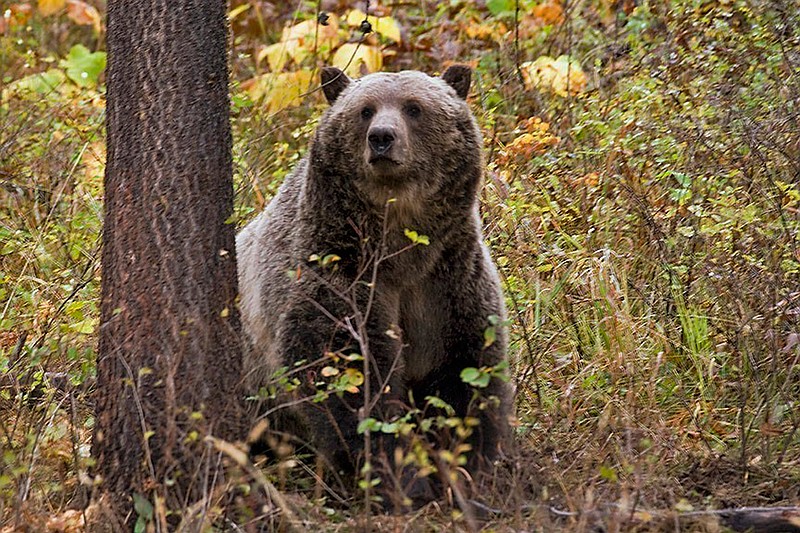BILLINGS, Mont.-Native American leaders pressed lawmakers in Congress Wednesday to adopt permanent protections for grizzly bears, a species widely revered by tribes but that has been proposed for hunting in Wyoming and Idaho.
Proposed legislation would block grizzly hunting in the Lower 48 states, regardless of the species' population size, and allow for the reintroduction of bruins to tribal lands.
Grizzlies play a central role in the traditions and ceremonies of many tribes, said former Hopi Tribe chairman Benjamin Nuvamsa. Some Native Americans refer to them as "Uncle" or "Grandfather" and consider the animals to be healers.
"It's like the eagle; we don't shoot them because it's that sacred," said Nuvamsa, a member of the tribe's Hopi Bear Clan. "It has a really, really deep meaning for us, and we have to preserve and respect it."
But the push for permanent protections elicited sharp criticism from some Republicans as a House subcommittee took up the legislation. The backlash stems from growing pressure by state officials in the Northern Rockies to allow hunting because of grizzly attacks on livestock and occasionally people.
The House panel's ranking Republican, California Rep. Tom McClintock, said the proposal runs counter to the conclusions of government scientists. They say grizzlies have made significant strides toward recovery, particularly in and around Yellowstone National Park.
"The science tells us the population is fully recovered," McClintock said. "This bill substitutes emotional, ideological and sentimental biases that are the polar opposite of scientific resource management."
Montana Republican Rep. Greg Gianforte also spoke out against the bill. He noted that grizzlies increasingly are showing up in agricultural areas where there is greater risk of run-ins.
Last fall, a federal judge in Montana blocked grizzly hunts days before they were scheduled to begin. The ruling also restored threatened species status for about 700 bears in the three-state Yellowstone region.
An appeal filed by attorneys for the U.S. Fish and Wildlife Service is pending before the 9th U.S. Circuit Court of Appeals.
Grizzly bears were nearly exterminated across much of the U.S. by hunting and trapping early last century. They received federal protections in 1975, and they have since slowly rebounded in portions of Montana, Wyoming and Idaho. Grizzly hunting is allowed in Alaska.
The move to make protections permanent is sponsored by Rep. Raul Grijalva, chairman of the House Natural Resources Committee. The Arizona Democrat said the intent was to recognize and honor the bear's unique place in Native American tradition, by giving them protections beyond what's offered under the Endangered Species Act.
"The pressure from Fish and Wildlife is going to continue in this administration, and it's going to continue for delisting," said Grijalva, referring to the agency's thwarted attempt to revoke the bruins' threatened species status. Such a move would transfer authority over the animals to state game agencies.
Hunting grizzlies "is not a sport to native peoples," Grijalva added.
Jonathan Wood, a research fellow at the Property and Environment Research Center, said the measure would discourage states and landowners from cooperating in future efforts to restore imperiled species and undermine the goal of restoring grizzlies to more of their historical range.
Grijalva has offered similar legislation before but it went nowhere. It stands a better chance of advancing with Democrats now in control of the House, but it would face a tougher road in the Senate.

